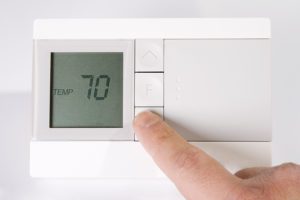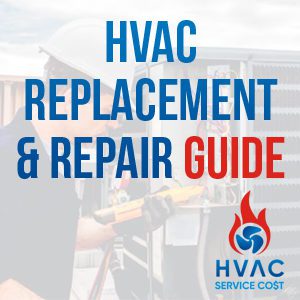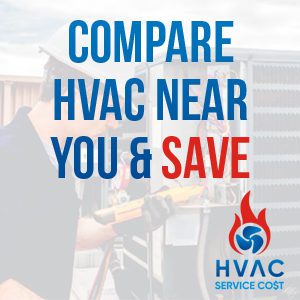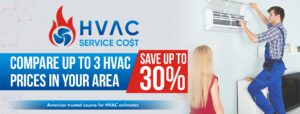
How Can You Improve the Efficiency of Your Existing HVAC System?
Improving the efficiency of your existing HVAC system is not only beneficial for reducing energy costs but also for extending the life of the system and maintaining optimal comfort in your home. There are several practical steps you can take to enhance the efficiency of your HVAC unit without the need for a complete HVAC replacement. Here, we’ll explore these strategies, which can lead to significant improvements in performance and energy savings.
Regular Maintenance Checks
The importance of regular maintenance cannot be overstressed when it comes to keeping your HVAC system running efficiently. An annual or semi-annual inspection by a professional can help catch issues that may hinder performance. During a maintenance check, a technician will typically clean the system, replace filters, check for leaks, ensure that the thermostat is working correctly, and inspect the electrical connections and motor for any signs of wear.
Regular maintenance helps prevent minor issues from becoming major problems and ensures that your system operates at peak efficiency. It’s also a good opportunity to ask your technician any specific questions about your system’s performance and potential energy-saving measures you can implement.
Comprehensive System Inspection
The first step in any thorough HVAC maintenance routine involves a detailed inspection of the entire system. This includes examining both the indoor and outdoor components of the system:
- Thermostat Settings: The technician checks to ensure the thermostat is functioning properly and communicates correctly with the HVAC system. They may also offer tips on optimal settings for energy efficiency.
- Electrical Connections: All electrical connections are inspected and tightened. Faulty electrical connections can cause unsafe operation of your system and reduce the life of major components.
- Lubrication: Moving parts within the HVAC unit are lubricated to reduce friction. Lack of lubrication causes parts to wear out faster and forces the system to use more electricity to overcome resistance.
- Condensate Drain: The technician will check the condensate drain for clogs. A clogged drain can cause water leakage and higher humidity levels inside the home, impacting comfort and potentially causing water damage.

Cleaning Key Components
Dirt and debris are the enemies of efficiency and longevity in HVAC systems. During regular maintenance, several components are cleaned to ensure optimal performance:
- Coils: Both the evaporator and condenser coils are cleaned. Dirty coils reduce the system’s ability to cool or heat your home, causing the system to run longer and increasing energy costs.
- Blower Components: Cleaning the blower motor and its components helps maintain proper airflow. Reduced airflow leads to a decline in system efficiency and comfort.
- Air Filters: The technician will check and replace the air filters if necessary. Homeowners are also advised on how often they should change the filters themselves, depending on the type of filter and household conditions (e.g., pets, allergies).
Checking System Controls
Ensuring that the system starts, operates, and shuts off properly is another crucial part of HVAC maintenance. The technician will check the system cycle and controls to make sure everything is operating safely and correctly. This includes verifying that the system starts up and shuts down in accordance with the thermostat’s settings without unusual noises or problems that might indicate a malfunction.
Assessing Refrigerant Levels
For cooling systems, checking the refrigerant level is essential. Too much or too little refrigerant can make your system less efficient, increase energy costs, and reduce the life of the equipment. The technician will check these levels and adjust them if necessary.
Safety Checks
HVAC units, especially those that involve combustion, can pose safety risks if not properly maintained. Technicians will perform checks on gas connections, gas pressure, burner combustion, and heat exchangers to ensure there are no leaks or other hazards that could pose risks to household safety.
Providing a Maintenance Report
At the end of the maintenance service, the technician should provide a detailed report that outlines what checks were performed, what repairs were made, and any recommendations for improving system performance or preventing future issues. This report can help you keep track of your system’s health and plan for any needed repairs or upgrades.

Upgrade Your Thermostat
Installing a programmable or smart thermostat can make a significant difference in your HVAC’s efficiency. These thermostats allow you to set temperatures for various times of the day and automatically lower or raise the temperature based on your daily schedule and preferences. For instance, you can set the thermostat to adjust the temperature when you are not home or at night, which reduces unnecessary heating and cooling and lowers your energy bills.
Smart thermostats offer even greater control and efficiency. They can learn your schedule and temperature preferences and adjust automatically. Additionally, many smart thermostats provide energy usage reports that can help you understand your consumption patterns and identify ways to save even more.
Here’s a look at the various thermostat upgrade options available and the benefits they can bring to your home:
Basic Programmable Thermostats
- Functionality Programmable thermostats allow you to set temperature schedules based on your daily and weekly routines. You can program the thermostat to lower the heat or raise the cooling automatically when you’re not home, and adjust to a more comfortable temperature before you return or wake up.
- Benefits The primary benefit of programmable thermostats is the ability to save on energy costs without sacrificing comfort. By only heating or cooling your home when necessary, you can significantly reduce unnecessary energy usage.
Wi-Fi Thermostats
- Functionality Wi-Fi thermostats offer the features of programmable thermostats, but with the added ability to control your HVAC system remotely via a smartphone, tablet, or computer. This connectivity allows you to adjust settings on the go, which is particularly useful if you’re away from home unexpectedly or returning earlier than planned.
- Benefits Remote access is a major advantage, providing flexibility and ensuring optimal home comfort at all times. Additionally, some Wi-Fi thermostats offer energy usage reports, which can help you understand your consumption patterns and identify opportunities for additional savings.
Smart Thermostats
- Functionality Smart thermostats represent the cutting-edge of thermostat technology. These devices offer the features of Wi-Fi thermostats along with ‘learning’ capabilities. They can adjust themselves based on your behavior patterns and preferences without requiring manual programming. Some models can also integrate with other smart home systems, respond to voice commands, and even alert you to necessary HVAC maintenance needs or inefficiencies in your system.
- Benefits Smart thermostats provide the highest level of energy efficiency and convenience. Their ability to learn and automatically adjust to your preferences not only maximizes comfort but also optimizes energy use, often leading to significant cost savings. The integration with broader home automation systems also enhances security and usability.

Zoned Systems
- Functionality For homes with inconsistent room temperatures or large square footage, upgrading to a zoned system with multiple thermostats can be beneficial. Zoned systems allow you to control the temperature in different areas (or zones) independently, which can be more efficient than heating or cooling the entire house to the same temperature.
- Benefits Zoning is ideal for large or multi-level homes where different areas may have varying heating and cooling needs. This system ensures that energy is not wasted on unoccupied or less frequently used spaces, reducing overall energy consumption and enhancing comfort across different zones of the home.
Seal Ductwork and Improve Insulation
Leaky ducts can significantly reduce the efficiency of your HVAC system by allowing warm or cool air to escape before reaching its intended destination. Sealing your ductwork is a cost-effective way to improve efficiency. Use duct sealant, or mastic, or metal-backed (foil) tape to seal all seams and connections. Also, insulating ducts that run through unheated spaces can help maintain the temperature of the air moving through them.
Improving your home’s insulation is another effective way to enhance your HVAC system’s efficiency. By ensuring that your walls, attic, floors, and basements are well insulated, you can prevent heat from escaping in the winter and entering in the summer, reducing the workload on your HVAC system.
Clean and Replace Filters Regularly
One of the simplest and most effective ways to improve your HVAC efficiency is to clean and replace its filters regularly. Dirty filters restrict airflow, causing the system to work harder, which can lead to increased energy usage and costs. Most filters need to be changed every one to three months, depending on usage and the type of filter. Keeping filters clean ensures optimal air flow, improved air quality, and reduced energy costs.
Consider HVAC System Upgrades
If your HVAC system is old and not as efficient as modern systems, consider upgrading to a high-efficiency model. Look for the ENERGY STAR label when choosing a new HVAC system, as these models meet strict energy efficiency guidelines set by the U.S. Environmental Protection Agency. While the upfront cost of a high-efficiency system may be higher, the long-term savings on energy bills can be substantial.

Types of HVAC System Upgrades
- High-Efficiency Units Modern HVAC systems are designed with superior energy efficiency in mind. Upgrading to a high-efficiency unit can significantly reduce your energy consumption and lower your utility bills. Look for units with a high Seasonal Energy Efficiency Ratio (SEER) and Energy Star ratings to ensure maximum energy savings.
- Advanced Filtration Systems Upgrading to a more advanced filtration system can improve indoor air quality, which is particularly beneficial for individuals with allergies or respiratory issues. HEPA filters, or high-efficiency particulate air filters, can trap fine particles such as pollen, pet dander, and dust mites more effectively than standard filters.
- Smart HVAC Systems Similar to smart thermostats, entire smart HVAC systems can optimize your home’s heating and cooling autonomously. These systems adjust to your habits and preferences and can be controlled remotely through smartphone apps. Integration with other smart home devices provides a seamless home automation experience that maximizes comfort and efficiency.
- Ductless Systems For homes without existing ductwork or for additions where extending ductwork is impractical, ductless mini-split systems offer a flexible alternative. These systems provide targeted heating and cooling to specific areas without the need for a network of ducts, offering an efficient and less invasive option for temperature control.
Hiring a Professional HVAC Service
- Expertise and Experience Professional HVAC technicians possess the skills and knowledge necessary to evaluate your current system and recommend appropriate upgrades. They understand how different systems operate and can identify the best solutions tailored to your specific needs and local climate conditions.
- Proper Installation Correct installation is critical to the performance and efficiency of any HVAC system. Improper installation can lead to frequent breakdowns, decreased system efficiency, and shorter life expectancy of the unit. Professional HVAC services ensure that new systems are installed correctly and configured optimally for your home’s layout and size.
- Warranty and Support Many HVAC systems come with warranties that are only valid if the installation is carried out by a licensed professional. These warranties protect you from costs associated with defects or unexpected failures. Additionally, professional HVAC companies often provide support and maintenance services after installation, ensuring that your system continues to operate efficiently over time.
- Compliance with Regulations HVAC installations often need to meet specific local building codes and regulations. Professional HVAC services are familiar with these requirements and can ensure that your new system complies with all legal standards, helping you avoid fines and ensuring that your system passes any home inspection without issues.
Investing in an HVAC upgrade can provide long-term benefits, including reduced energy costs, improved comfort, better air quality, and increased property value. However, the complexity of HVAC systems makes professional installation and maintenance essential. By hiring a professional HVAC service, you ensure that your new system is installed and maintained correctly, maximizing its efficiency and lifespan while protecting your investment. Whether you’re considering a simple upgrade like a new thermostat or a complete system overhaul, professional guidance is invaluable in making the right choices for your home and family.
Improving the efficiency of your HVAC system involves a combination of regular maintenance, technological upgrades, and system enhancements. By implementing these strategies, you can enjoy lower energy bills, a reduced environmental impact, and a more comfortable living environment. Regular attention and upgrades to your HVAC system not only contribute to its longevity but also to the overall energy efficiency of your home.




Leave a Reply